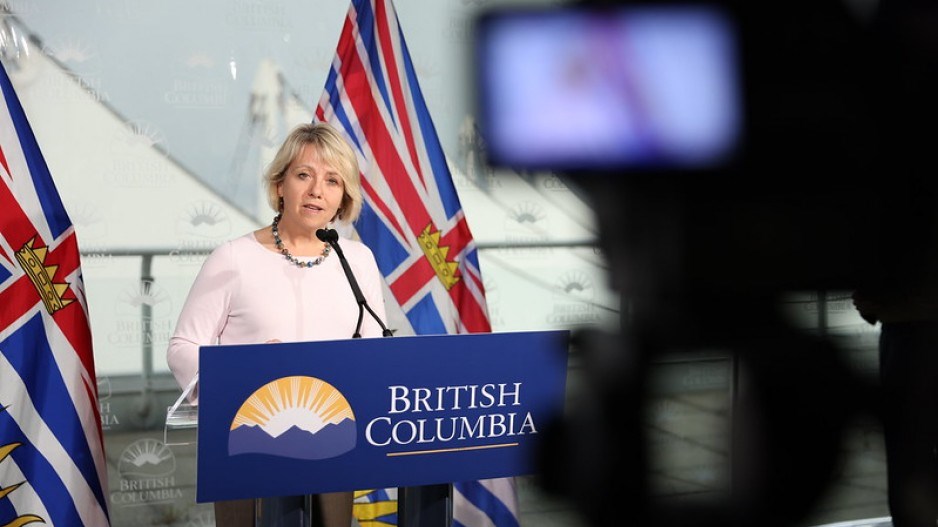British Columbia has seen a second day of record-high COVID-19 cases, with 274 new cases reported on Thursday.
B.C. reported more than 200 new infections for the first time on Wednesday, with 203 confirmed cases.
There were five new cases reported in the Island Health region Thursday, bringing the total number of active cases to 15. There has also been a new COVID-19 exposure at a Vancouver Island school, Island Health said.
Families at Wood Elementary School in Port Alberni received a letter Wednesday saying a member of the school community has tested positive for COVID-19.
The exposure happened on Oct. 19 and the health authority will use contact tracing to notify staff and students who need to self-isolate or self-monitor for COVID-19 symptoms.
People who have been asked to self-isolate received a phone call, while those told to self-monitor were notified by letter.
Those who have not been contacted should continue to attend school and monitor for symptoms, according to the letter, signed by Dr. Shannon Waters, medical health officer for the Cowichan Valley region, and Pacific Rim school district superintendent Greg Smyth.
The latest school exposure on the Island follows two previous school exposures in September: One at Carihi Secondary in Campbell River on Sept. 28 and one at Alberni Secondary in Port Alberni on Sept. 22.
B.C. has seen its first school outbreak, at Kelowna’s Ecole de l’Anse-au-Sable School, where five cases have been confirmed.
Provincial health officer Dr. Bonnie Henry said despite the school outbreak, there’s no indication the return to in-person classes has caused COVID-19 to spread.
Since in-person classes resumed on Sept. 10, here have been 213 exposure warnings of COVID-19 cases linked to a school, Henry said. There have been six “clusters” where more than one person linked to a school was infected and the Kelowna case is the first outbreak, she said. An outbreak outside a health facility is declared when at least two people test positive.
“We are not seeing return to school cause the amplification [of infections] in our community,” Henry said.
“While it’s concerning that we have an outbreak, what I think is positive about this is that we are monitoring all of the exposure events and we have had very little transmission in the schools and public health has been working with schools across the province to keep it that way.”
Henry said the majority of new COVID-19 cases are concentrated around the Lower Mainland, with 203 new cases in the Fraser Health region on Thursday.
The Fraser Health authority confirmed outbreaks at several long-term care homes and assisted-living facilities. The province has 1,920 active cases, with 71 people in hospital, 24 of whom are in critical care.
Henry said people are also travelling across the province and coming to B.C. from other parts of Canada, which increases the risk of spreading the virus.
The B.C. Centre for Disease Control has warned of a COVID-19 exposure on a flight to Victoria on Oct. 15. There was a confirmed case on Air Canada flight 195 from Toronto that day, and passengers in rows 17-23 are advised to self-isolate and monitor for COVID-19 symptoms.
Gatherings such as weddings, funerals and Thanksgiving meals have caused significant spread of the coronavirus in the province, said Henry, adding as the cold weather sets in and events move indoors, there’s a higher risk for the virus to spread.
People getting married should consider having a civil ceremony and waiting until next year to hold a larger gathering with extended family and friends, she said.
The maximum gathering size remains 50 people, but as flu season begins, people need to be extra cautious and limit gatherings to their households plus their “safe six” bubbles, Henry said.
“You may think the risk doesn’t apply to you because you live far away from the Lower Mainland. But we have seen on many occasions … that COVID‑19 knows no boundaries and impacts us all.”
kderosa@timescolonist.com



